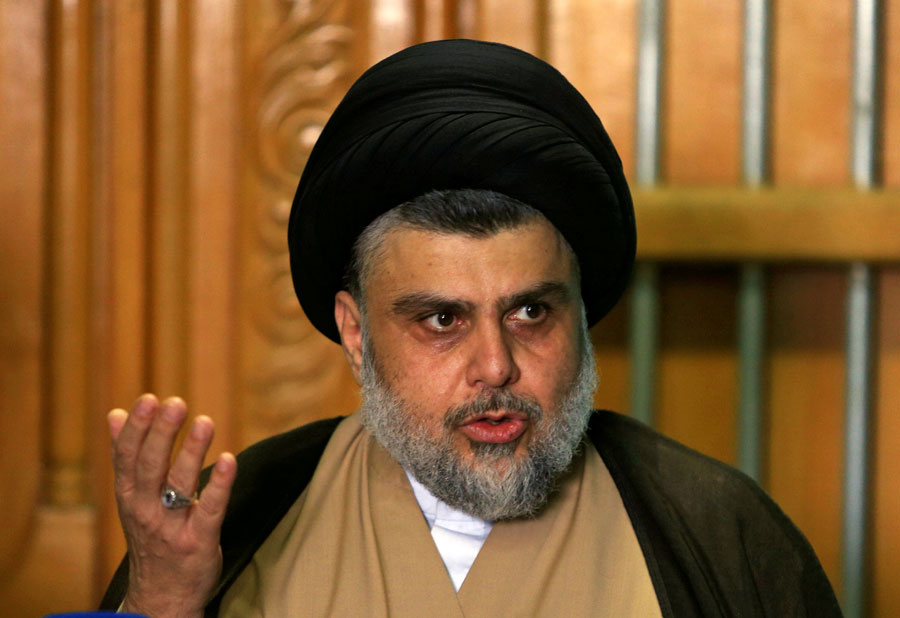Iraq's Shiite Cleric Sadr meets election's 2nd winner over forming new gov't


BAGHDAD - The prominent Shiite cleric Moqtada al-Sadr, whose al-Sa'iroon political coalition won most seats in the country's May 12 parliamentary elections, met on Sunday with Hadi al-Ameri, the second winner of the election to discuss the formation of a new government.
A statement by Sadr office said Sadr met with Ameri, head of al-Fath political Coalition, which represents Hashd Shaabi militias, and discussed "the developments of the political process and the results of 2018 parliamentary elections."
"The formation of the government must be a national decision and importantly, all the winning political blocs must participate," the statement said.
Early on Saturday, the Independent High Electoral Commission (IHEC) announced the final results of the parliamentary elections, which showed that the al-Sa'iroon won 54 seats in the upcoming 329-seat parliament, while Ameri's al-Fath came in the second place with 47 seats.
Al-Fath is an umbrella group for the Shiite political Badr Organization, which has close ties with Iran, in addition to paramilitary Shiite militias of Hashd Shaabi who fought Islamic State (IS) group with the government forces.
Sadr's meeting with Ameri came hours after Sadr's meeting with Prime Minister Haider al-Abadi, whose al-Nasr political Coalition came third with 42 seats.
Abadi and Sadr discussed "working together to speed up the formation of a new government that should be strong and provide services, jobs, improving living standards and fighting corruption," according to a statement by Abadi's office.
For his part, Sadr said "the meeting was a reassuring message that the next government would take care of all the Iraqi people," and "our hands are extending to all those who want to build Iraq."
Meanwhile, Ameri's office said in a statement that al-Fath leader held a series of meetings during the day with leaders of winning political blocs to discuss the formation of the largest alliance that would form the next government.
Ameri's meeting included Nuri al-Maliki, head of State of Law Coalition, and Ammar al-Hakim, head of al-Hikma al-Watany Movement, and Ayad Allawi, head of al-Wataniyah Coalition, in addition to a telephone meeting with the Kurdish leader Masoud Barzani, head of Kurdistan Democratic Party, Ameri's statement said.
The two major Kurdish parties, KDP and Patriotic Union of Kurdistan (PUK), took the lead in the Kurdish region and in the ethnically-mixed province of Kirkuk with 25 seats for the KDP and 18 for the PUK, according to IHEC figures.
On May 12, millions of Iraqis went to 8,959 polling centers across the country to vote for their parliamentary representatives in the first general election after Iraq's historic victory over the Islamic State group last December.
Some 90 political entities and 7,000 candidates were vying for 329 seats in the parliament.
































